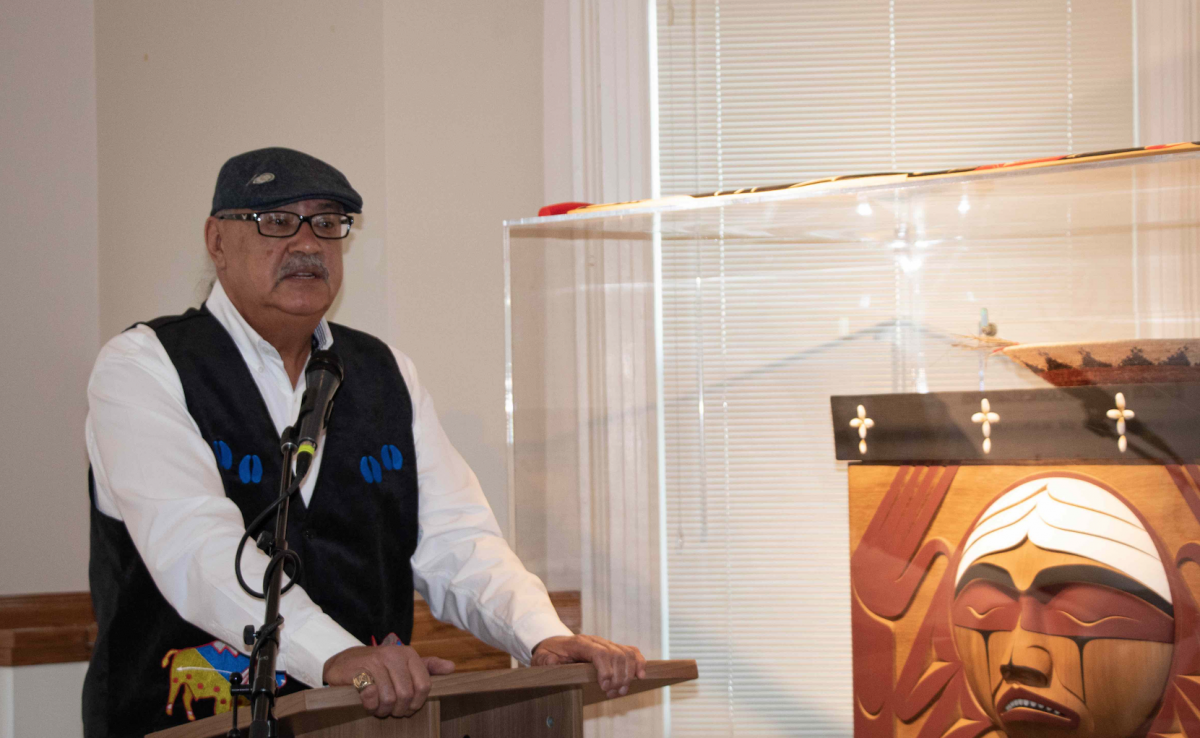
Survivor Eugene Arcand speaking at the release of the Lessons Learned Survivors Perspectives Report
Lessons Learned report released following review of the Indian Residential School Settlement Agreement
Informed by Residential School Survivors from across the country, a report released this week outlines lessons learned in reviewing the Indian Residential School Settlement Agreement (IRSSA). The five-month review and resulting report were led by the National Centre for Truth and Reconciliation (NCTR).
The Lessons Learned Survivors Perspectives Report summarizes the IRSSA review that took place from October 2018 to February 2019. The review included one-day engagements and one-on-one interviews with First Nations, Métis and Inuit Residential School Survivors and intergenerational Survivors on how they were affected by the settlement agreement.
The report is based on feedback that examines the impact on communities and Survivors, and the unnecessary challenges faced by Survivors during the settlement agreement process.
There are multiple lessons to be learned from the report. The content can inform the development of future settlement agreements, such as the Day School Settlement currently in process. The information can also be utilized in the implementation of the TRC Calls to Action and in current discussions on Reconciliation.
The overarching takeaway from the report is that all actions meant to right wrongs for Survivors should be fully based on Survivor focused and Indigenous approaches.
“The failure to consider the diverse perspectives, needs and realities, including culture and language, of all Survivors and Indigenous people impairs and limits the intended benefit of redress, and compounds the harm already suffered,” said Ry Moran, Director of the NCTR.
Cultural competency for a supportive and safe environment is essential, the report notes. Officials having cultural knowledge and an understanding of the trauma endured by Survivors will help to limit the re-traumatization of Survivors going through the process of describing these difficult experiences in their lives.
“We must fully adopt Survivor-centered approaches in any and all forms of redress aimed at correcting past wrongs. The pattern of continuing harm due to colonial processes has to stop,” said Eugene Arcand, Survivor and Chair of the NCTR Governing Circle. “This applies equally to all forms of abuse or historical wrongdoing, whether related to Residential Schools, Day Schools, Missing and Murdered Indigenous Women and Girls or any other form of personal or collective abuse.”
The Survivors did describe benefits from the settlement agreement. One main benefit was that the process helped them along their healing journey through sharing their experiences with Canada. It not only helped Survivors, but also helped start the country’s healing journey through the concrete steps towards Reconciliation and implementing the Calls to Action.
The report is clear on future agreements and how the country should proceed towards Reconciliation and through the difficult process of righting the wrongs: implementing the Calls to Action is essential to help reduce the harms towards Indigenous people and Survivors.
The IRSSA Lessons Learned Report is available on the NCTR website.






